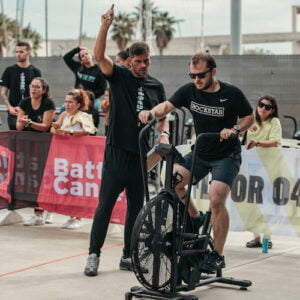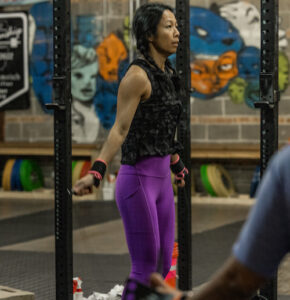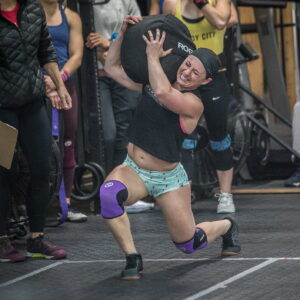As people get into CrossFit, some percentage of them start to get pretty excited about the training.
While they just start off coming to classes, enjoying the workouts, and maybe making a few friends along the way, they start to realize that there’s a whole world of skills, personal records, and faster times to be uncovered.
For these folks, there often comes a tipping point when they decide that they want to do more than is in the typical CrossFit class.
But, what does that look like? It’s not just about jumping from doing a few 60 minute classes per week straight into multiple double days and 90s minute sessions that we see CrossFit Games athletes posting on Instagram.
So, how should people think about making the transition into doing more work outside of classes and focusing more on competing?
How does an idealized version of this journey compare to the often messy reality of how many athletes transition into more competitive training?
Check out the full conversation with Jon, Luke, and Todd to learn:
- The one thing that athletes should prioritize when starting to add additional training outside of classes
- Why “best practices” rarely apply to the journey that most people go on as they start to compete — and how to mitigate the potential damage from silly training
- The surprising benefit of finding a training group to work with
Listen Here
- iTunes
- Overcast
- Google Podcasts
- mp3
- Or stream here:
- If you’re enjoying the show, why not a leave a review? It makes a difference in terms of other people finding the show.
Show Notes:
- [00:13] What is the typical journey from just doing “CrossFit classes” to becoming a competitor — and what bad advice do people get along the way?
- [07:14] What is the most important thing someone can focus on as they attempt to transition to doing “more than in a class”?
- [14:00] Following “absolute best practices” isn’t necessarily realistic or important for people just getting into competing. How can people find low hanging fruit to focus on in training?
- [20:34] Training in a group — while often devoid of “best practices” — teaches athletes many of the tacit skills that they need in order to understand how to compete.
- [29:39] As long as people are learning and not pushing themselves too hard, it’s ok to do “stupid stuff” in training and almost every competitor has a period where they go through this process.
- [34:17] A lot of people do not necessarily want to push for absolute peak performance — it’s ok to just want to work out and throw down with their friends.






